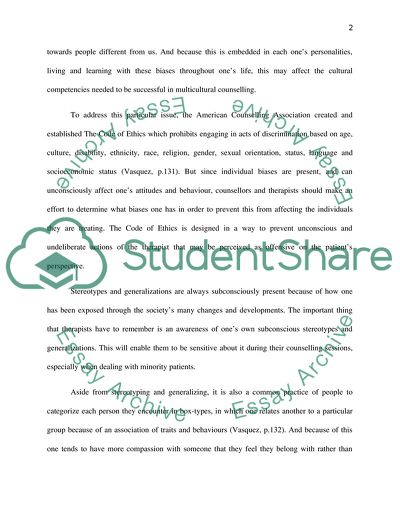Cite this document
(“Cultural competence as part of multicultural counselling Essay”, n.d.)
Retrieved from https://studentshare.org/sociology/1563936-multicultural-counseling
Retrieved from https://studentshare.org/sociology/1563936-multicultural-counseling
(Cultural Competence As Part of Multicultural Counselling Essay)
https://studentshare.org/sociology/1563936-multicultural-counseling.
https://studentshare.org/sociology/1563936-multicultural-counseling.
“Cultural Competence As Part of Multicultural Counselling Essay”, n.d. https://studentshare.org/sociology/1563936-multicultural-counseling.


